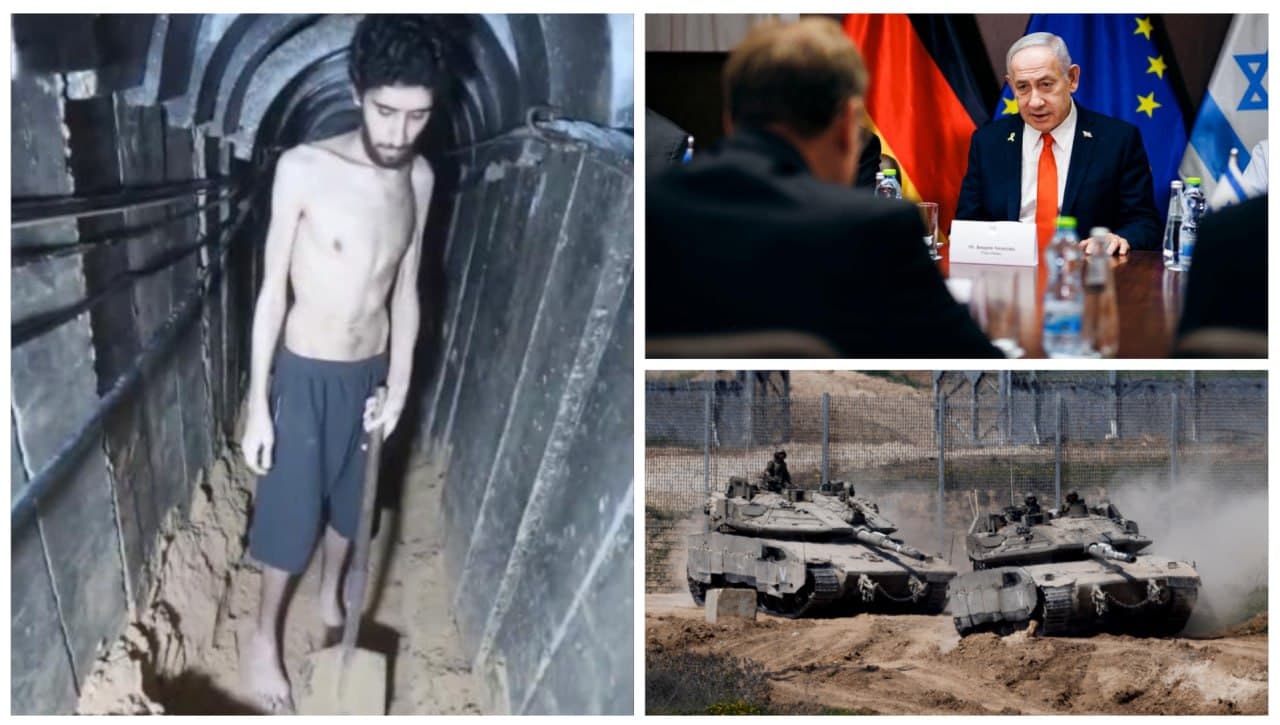Netanyahu Orders Complete Military Occupation of Gaza to Secure Hostage Release
In a dramatic escalation of the ongoing conflict, Israeli Prime Minister Benjamin Netanyahu has ordered a full military occupation of the Gaza Strip. This decision comes in the wake of a harrowing video released by Hamas, showing one of the hostages, Eviatar David, seemingly digging his own grave. With this military action, Netanyahu aims to compel Hamas to release approximately 50 hostages believed to be held within the enclave.
Background & Context
The Gaza Strip has been a focal point of Israeli-Palestinian tensions for decades, with Hamas, a militant organization, controlling the territory since 2007. Israel"s military operations in Gaza have intensified over the years, particularly following escalations in violence and hostage situations. The recent video, which has drawn widespread condemnation and horror, has prompted a significant shift in Israeli military strategy, marking the first time Netanyahu has called for a complete occupation of the area since the last major conflict.
The Israel Defense Forces (IDF) currently control about 75% of the Gaza Strip, but the remaining 25% is believed to house critical locations where hostages are being held. Netanyahu"s directive aims to tighten military control over these areas, allowing for more extensive operations aimed at locating and rescuing the hostages. The occupation order reflects a broader strategy to dismantle Hamas"s military capabilities while ensuring the safety of Israeli citizens.
Key Developments
In a statement released shortly after the order, Netanyahu emphasized the urgency of the situation, declaring, "We will do whatever it takes to bring our people home." The military occupation is expected to involve ground troops, airstrikes, and intelligence operations designed to pinpoint the locations of the hostages. The IDF has already begun preparations for the full takeover, coordinating with intelligence agencies to map out areas of interest.
Experts suggest that the decision for a complete occupation may escalate hostilities further, with Hamas likely to respond with increased attacks. This precarious situation places both hostages and civilians at higher risk, drawing international scrutiny and concern regarding the humanitarian implications of such an operation. As previously reported, the IDF has faced criticism for its military tactics in densely populated areas, raising questions about civilian casualties and the impact on Gaza"s already strained infrastructure.
Broader Impact
The implications of this military occupation extend beyond the immediate rescue efforts. Analysts warn that a prolonged Israeli presence in Gaza could lead to a re-escalation of violence, further destabilizing the region. Historical patterns indicate that military occupations often result in increased resistance from local populations, potentially leading to a cycle of violence that is difficult to break. As seen in similar situations, the international community may become increasingly involved, with calls for peace negotiations and humanitarian aid efforts.
The response from neighboring countries and global powers will also be pivotal. The ongoing conflict has already drawn attention from the United States and European nations, which have historically played roles in mediating peace talks. Recent developments in international relations, such as Trump"s signals of progress in US-China relations, could influence how external actors respond to Israel"s military actions and the broader implications for Middle Eastern diplomacy.
What"s Next
As the IDF prepares for the full occupation of Gaza, the immediate focus will be on intelligence gathering and military readiness. Netanyahu"s government will likely face pressure to justify the occupation"s necessity, both domestically and internationally. The potential for civilian casualties and humanitarian crises will be major points of contention in the coming days.
Looking ahead, the situation remains fluid, with possibilities for negotiations or further military escalation. The fate of the hostages will be a critical factor in shaping public opinion and influencing Israeli policy. As tensions rise, the world will be watching closely to see how this latest chapter in the Israeli-Palestinian conflict unfolds and what measures will be taken to ensure the safety of all involved, particularly those caught in the crossfire.


![[Video] Heavy clashes and gunfire reported in Baghdad, Iraq](/_next/image?url=%2Fapi%2Fimage%2Fthumbnails%2Fthumbnail-1768342239932-848qsh-thumbnail.jpg&w=3840&q=75)




![[Video] Gunfire between Iraqi security forces and Sadr militias in Baghdad](/_next/image?url=%2Fapi%2Fimage%2Fthumbnails%2Fthumbnail-1768343508874-4redb-thumbnail.jpg&w=3840&q=75)
